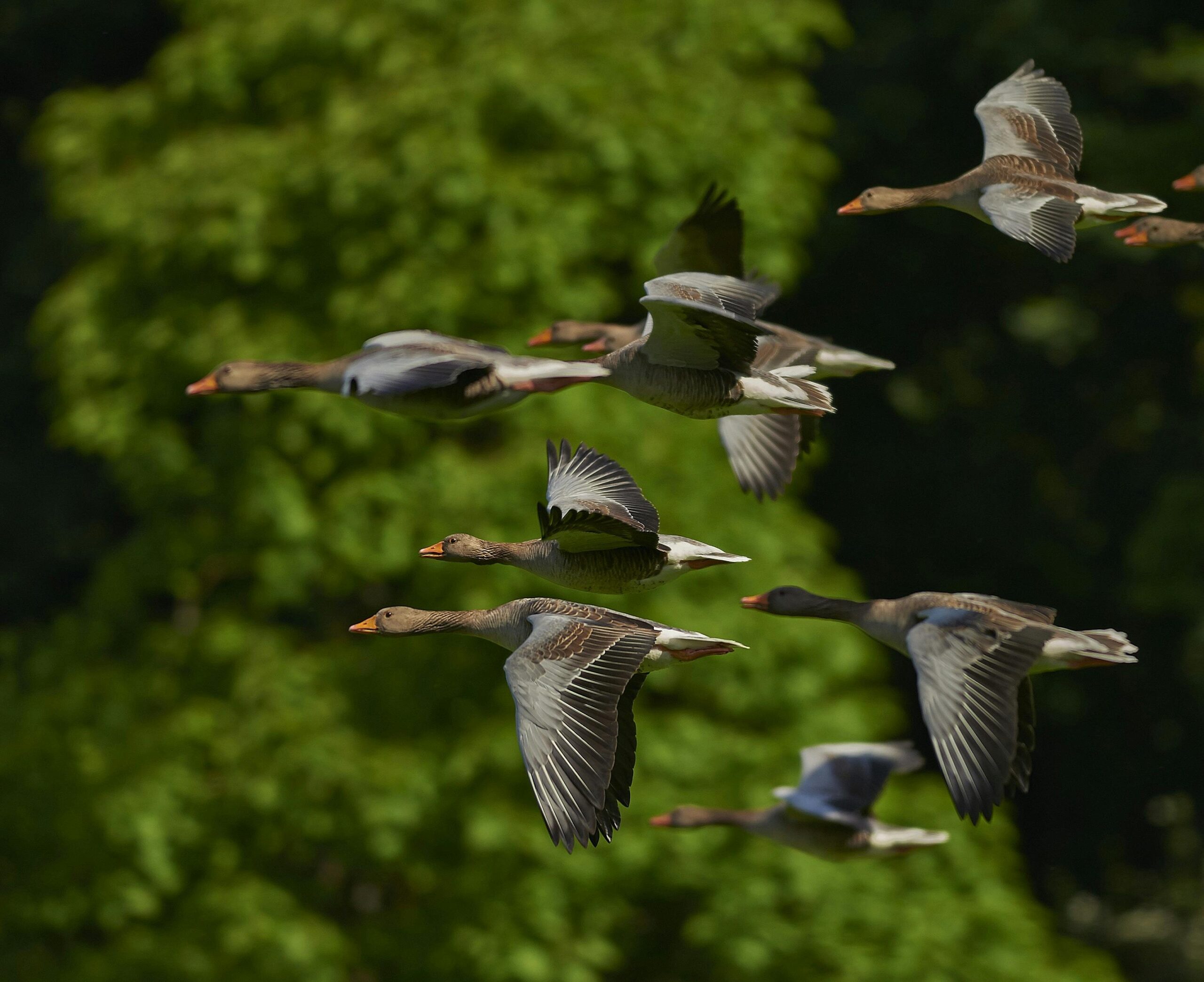By MORRI CREECH
Where were the wild geese going, slurred across
the yellow sky in mid-December light,
fading into some everglade of memory?
I saw them slip like notions over the pines
in simple distances beyond the winter
as the wind laid the river grasses down,
saw how the strict formations left no trace.
And when the scene played over in my mind
it was like a drunken shadow on the air,
a signature, a knit of furrowed brows,
like the stitches of herringbone in motion—
or like, it seemed to me, a man in winter,
eyes closed under the wide wing of the sky,
watching, again, the vanished wild geese fly.
Morri Creech is the author of five books of poetry, the latest of which is The Sentence. He teaches at Queens University of Charlotte in North Carolina.




